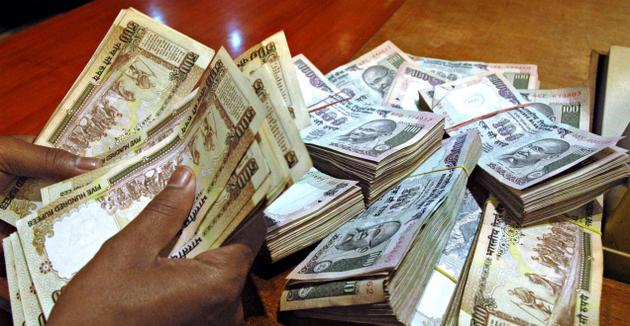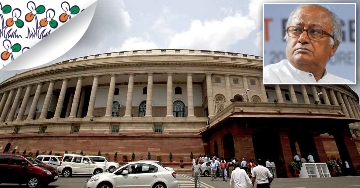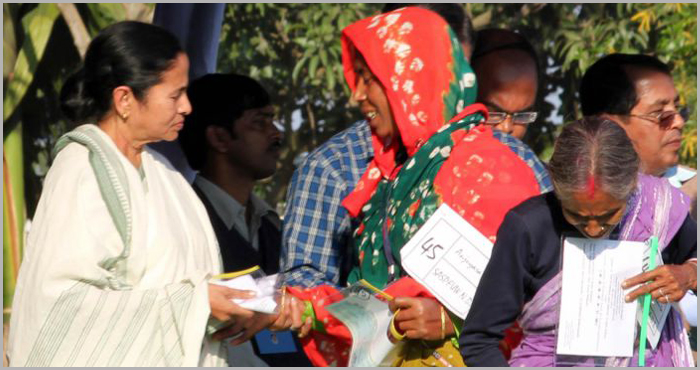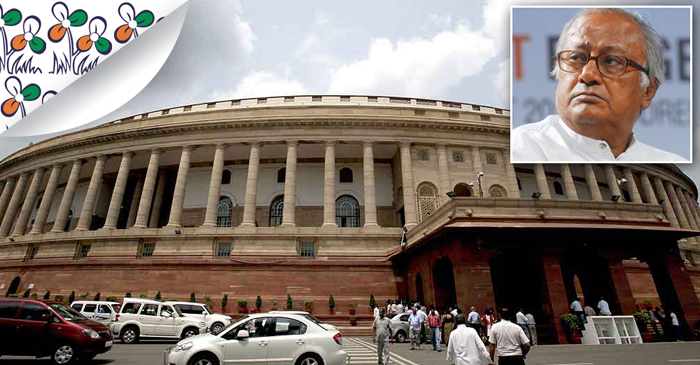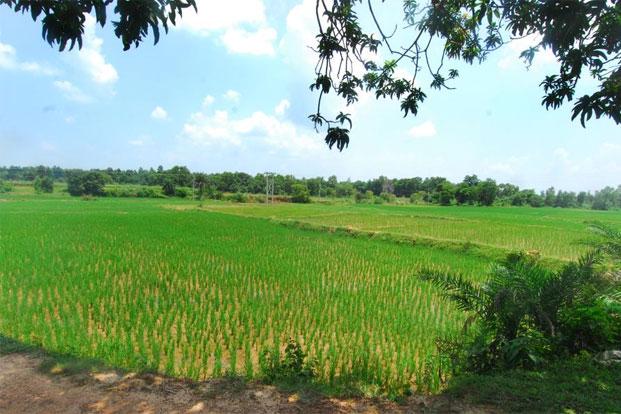Full Transcript
Sir, on behalf of my party, I support the Undisclosed Foreign Income and Assets (Imposition of Tax) Bill, 2015. Sir there is no doubt that this type of enactment was needed long back but I have some debatable questions where the merit of the Bill is concerned. The real question is whether this Bill really holds in-built provision for establishing the charges at all or not.
This Bill does not make any provision for bringing back the black money from the foreign country to India. If I correctly remember, on several occasions the honourable Finance Minister said that the government was going to bring a Bill in respect of the undisclosed foreign income and assets for the purpose of bringing back the black money into the country. My humble question to the Finance Minister and the MoS Finance here: Can you show us any single provision whereby and where under our government is empowered to bring back black money into the country itself?
Baaton ke jaadu mein kuch nahi hota hai, saheb. Kaam karna hoga. Baaton ka jadoo toh bahut ho gaya. Vishwas toh 125 crore aadmi aap ko kiya tha. Ek paisa wapas nahi aaya.
Where is the promise of the Prime Minister that the black money would be brought back within 100 days and 15 lakh rupees would be given to every citizen of the country? He has gone beyond his promise. Sorry to say Sir, with all due respect to the honourable Prime Minister, unke baton mein jaadoo hai, kaam mein kuch nahi hain.
The provisions of this Bill are quasi-judicial in character. If no one discloses, then charge has to be framed, then proceeding has to be initiated. This takes a quasi-judicial character and when a penalty is involved it is a quasi-criminal character. Therefore, the charge to be farmed has to be established.
How can we establish the charges? Under Section 8(1B), you are saying, “enforcing the attendance of any person, including any officer of banking company and examining him on oath.”
If that is so, a person who stacks away any black money and keeps it in a foreign bank, unless the official from the foreign bank comes up with the documents, and gives evidence, how will you prove the charges? This is what Section 8(1B) says.
If someone has taken the money out of the country and deposited it in the foreign bank, information would not do. Because of the agreement some information coming from the foreign country would not do. It has to be proved. Each and every transaction has to be proved. Do you think that in all cases foreign bank officials would come and leak the evidence in the country? It is impractical.
This Act is all right for the purpose of publicity, for the purpose of doing things. For the purpose of achieving the political objective it is good. But come to the substance of it. How will you prove the charges unless you have evidence? If it is not legal evidence it cannot be done. And in the case of legal evidence one has to bring an official to the witness stand to prove it because the right to exam the effective person is there. How will you do it? This is the point so far as Section 8 itself.
Earlier, 12 times the voluntary disclosure scheme was brought in the country. This is not a new concept, it is an old one. In fact the in-built provisions of the Acts are akin to some of the provisions of the Income Tax Act itself. Nothing new, it is an old wine in a new bottle with a new name. We want to know exactly how much money was brought back under those voluntary disclosure schemes.
Sir, black money is generated in the country itself. Thereafter it is stashed away. Under this Act, what preventive measures have been taken by you to stop the generation of the black money? To curb black money you have to stop it at the threshold where it is being generated. How? This Act does not speak about that. Sir unless it is stopped, unless it is prohibited, no good result will come.
Come up with a mechanism (we’ll appreciate it) specified under the law for stopping all sorts of black money, whether it is domestic or whether it is foreign. It has to be stopped.
Nobody knows yet the estimate of black money stashed away. Sir, I have been informed (subject to correction) in 2010 the Standing Committee on finance appointed three agencies to ascertain the amount of black money stashed away from the country. Such a report has not been disclosed as yet.
Sir, this Act doesn’t really have any teeth. If anybody discloses it is all right we can recover the money and impose 30% taxes. However if one doesn’t disclose, you don’t have any teeth to catch him. You are purely relying upon evidences which are in the foreign countries and not on the basis of the evidence here.
Do you really think a person who has a huge amount of black money will keep it in a nationalised bank here and transfer it via internet? Do you think a person who is keeping Rs 50 crore of black money will keep it in a bank anywhere in India in his account and transfer it within a minute? There are examples. A transaction is made here following which 50% is paid here and 50% is being paid in a foreign country. How can you catch this under invoicing?
For your political commitment, you want to establish that you are doing so many things. In effect, you are not doing anything. We will give you full support. You bring in more stringent provisions and we will support you whole-heartedly to prevent the generation of black money in the country.
But sorry Sir, with great respect I say that this bill has no teeth. It is only for the purpose of achieving some political goal.
Thank You Sir.



